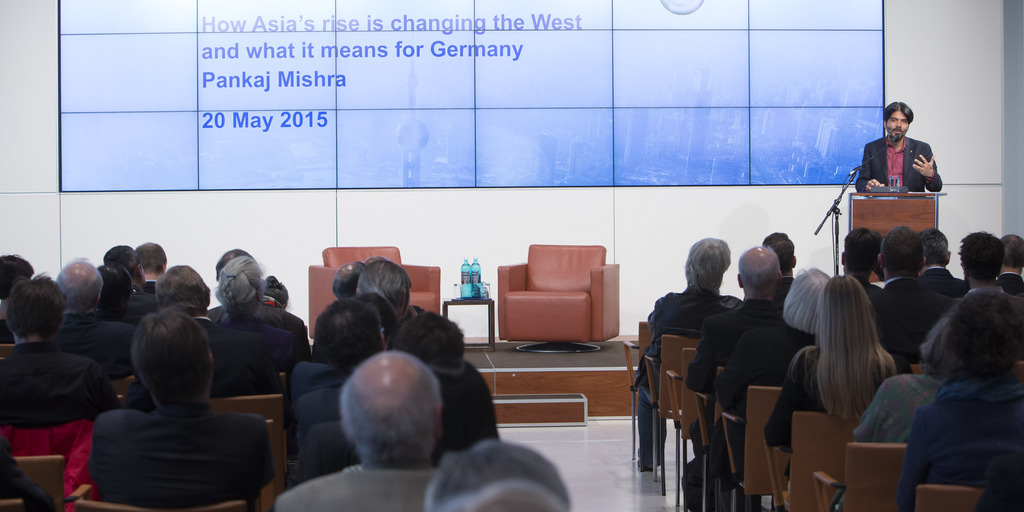Pankaj Mishra spoke about “How Asia’s rise is changing the West and what it means for Germany“. He noted a gigantic geopolitical shift that has led to a new phase in the relations between the West and Asia. The question of how Asia’s rise is influencing the West is in itself a sign of a fundamental shift in thinking, as this question would not have been raised ten years ago.
He reminded his audience that both, the West and Asia, are ambiguous and contested terms which defy a simple definition. Germany, for example, did not consider itself a part of the West during the 19th and first half of the 20th century. Its political and cultural identity was built – at least in part – in opposition to the western values of enlightenment and the French revolution. The West was then largely confined to Britain, France and the US. Germany rejected unbridled market capitalism and rule by democratic majority and stood for superior values of an inward looking culture and a strong state. Only after 1945 did West Germany become a definite partner of the West. Since 1989, Eastern Europe also came under the umbrella of the West. Since 9/11, the wars in Iraq and Afghanistan and Guantanamo, there have been cracks in the alliance driven by ‘Western values’.


![[Translate to English:] 2 Menschen sitzen vor einem Laptop und verfolgen die Zoom Time](/fileadmin/files/_processed_/9/7/csm_602110019AdobeStock_344907182_KONZERN_ST-IB.jpeg_Original_95431_BEARB_f90039ccad.jpg)

![[Translate to English:] Drei Personen in einer Arbeitsgruppe vor einem Laptop in einer Bibliothek.](/fileadmin/files/_processed_/7/0/csm_1753899692_DSC6677_1240x600px_1519b3fd9b.jpg)


